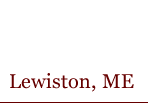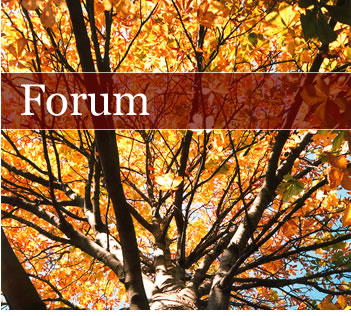






 |
 |
||||
 |
|||||
 |
|||||
 |
|||||
 |
|||||
 |
|||||
BCSG on Right Track
Tufaro's Article Correct, Revealing
Last Bastion of Political Incorrectness
Student Provides Connection to Bates from Abroad
Seeling Remembered, Honored by Former Student
Bates Hostile to Conservative Students' Opinions
Republicans Respond
Bush Lied? Join the Crowd
Clean, Renewable Energy A Possibility at Bates
The Revolution Will Not Be Televised
Can Bates Survive the Bottom Line?
To the Editor:
I read Cynthia Tufaro’s opinion column: “Can Professors be Unbiased?”
(Feb. 3) with admiration and sadness; admiration for her courage and forthrightness,
sadness for an institution and faculty that, even in the twenty- first century,
does not fully recognize the proper boundaries between teacher and student.
President Hansen’s comments on expanding diversity, “openness
to a variety (of) ways of being,” egalitarianism, self-awareness and
self-discipline appear as platitudes and hypocrisy juxtaposed to Miss Tufaro’s
comments. Most unfortunately, this is a national problem in secondary and
higher education in America, but since Bates is my alma mater, I shall address
a community for whom I care but about which there is one matter for shame.
I would argue that no teacher (instructor to tenured professor) should discuss
his or her political view in the classroom! To do so is an abuse of their
role of power over the student. Political views are deeply personal. For a
teacher to impose political views on students in a class where that student
is to be graded by the teacher is no different from that teacher imposing
religious or racial views or making sexual advances on that student. Outside
of the classroom, faculty are free to engage in whatever political action
they wish and faculty can and should debate their opinions with each other
and with students to fulfill each person’s First Amendment Rights. However,
political innuendo and sarcasm, whether from the right or the left, has no
place in the context of the teacher-student relationship and academic work.
Robert Frost wrote about good boundaries making for good neighbors. Boundaries
are the cornerstone for all healthy human interactions. This is especially
true in therapeutic relationships. Should the teacher-student relationship
be held to lower standard? I think not. I would argue it is even a nobler
and more sacred relationship since it shapes a life and mind over many years,
not just temporarily healing it. It is a form of narcissism and hubris for
a teacher to think his or her political preferences warrant mention in a science,
art, or psychology classroom or even in a political science classroom.
I would challenge the Bates student body to be the first in the nation to
hold their faculty accountable for “political incorrectness” and
President Hansen to provide national leadership on this matter as well as
encourage debate of this subject during this political season. Parents, alumni,
and trustees should expect and demand this. Only then can there be true intellectual
honesty, diversity, and most of all, freedom in Academia.
-Paul Millard Hardy, M.D. ’67
Hingham, MA
Respond to this article